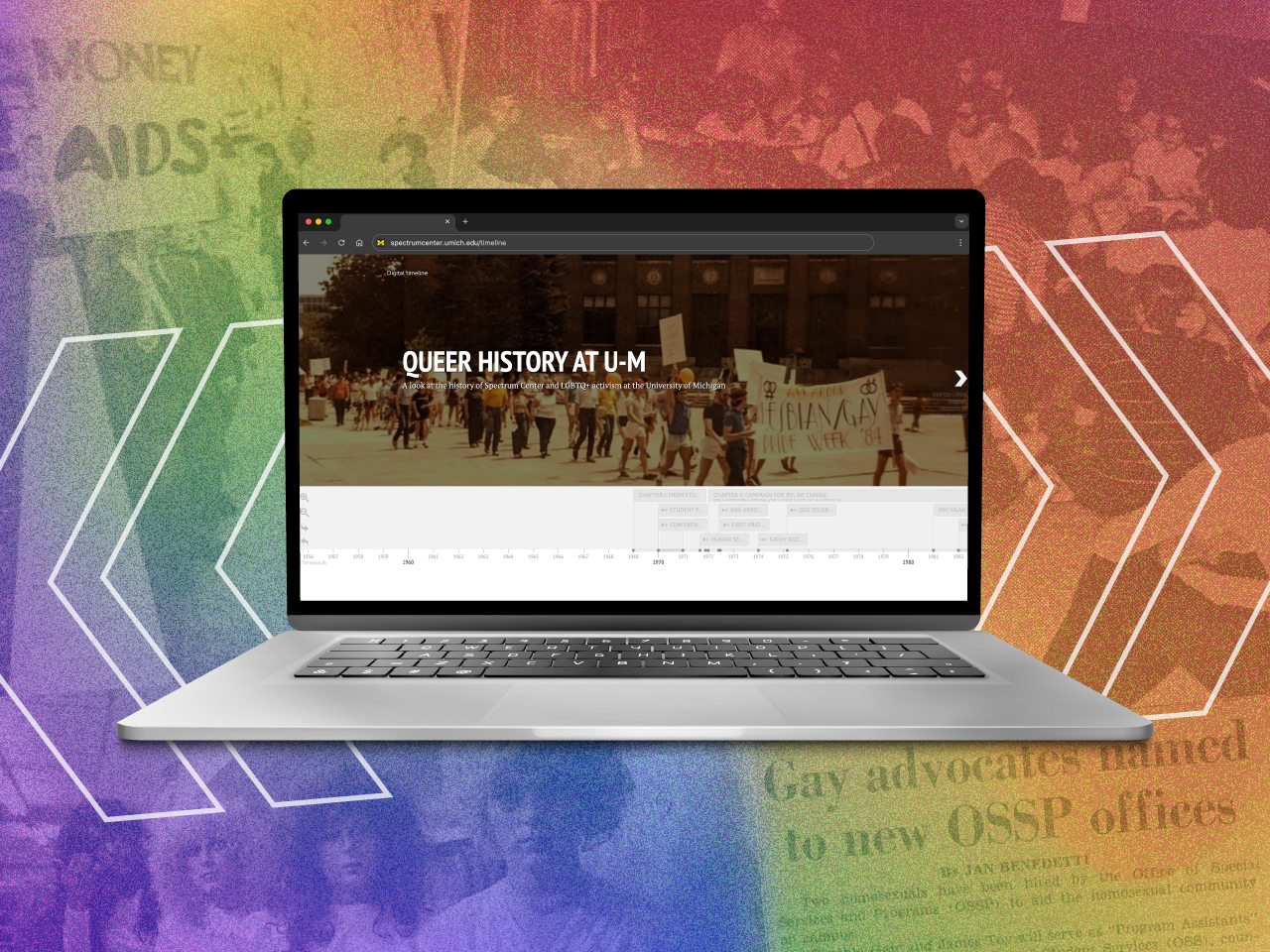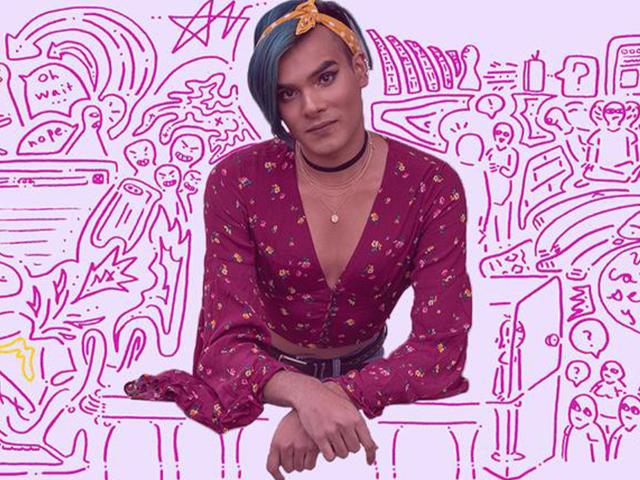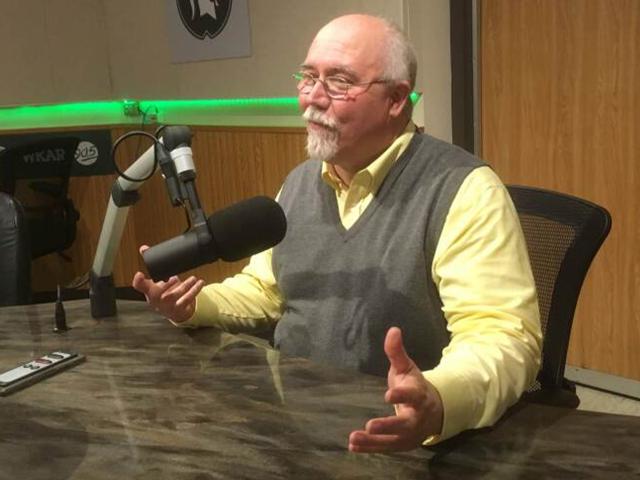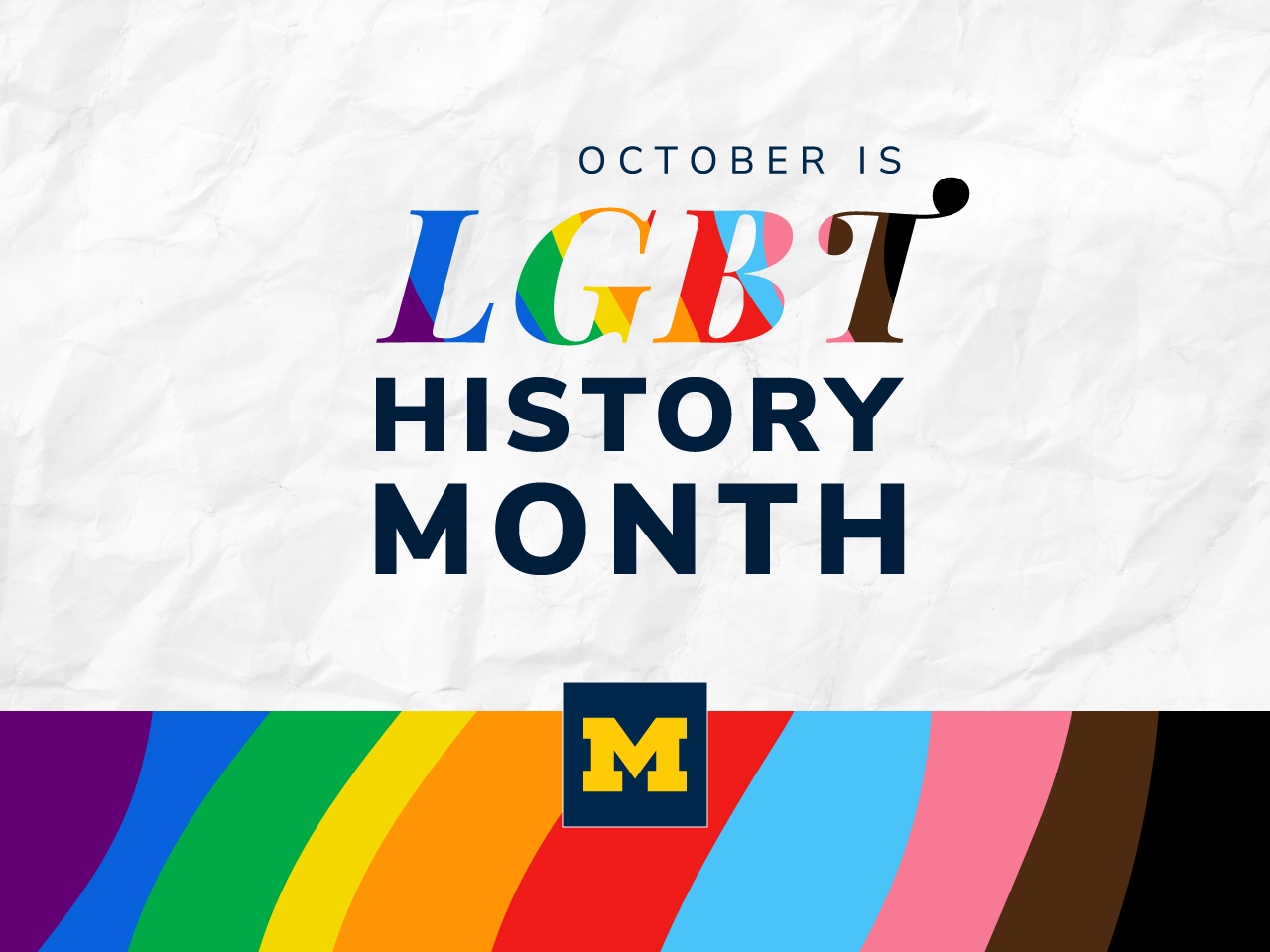The University of Michigan Spectrum Center was established in 1971 as the first center in higher education to support LGBTQIA2S+ students on campus.
Since its founding, Spectrum Center has continued to serve as a national leader in developing student services and programs through an intersectional lens.
Dive in—Flip through our interactive timeline, listen to oral histories, and find quick facts and archival materials.
![]()
Interactive timeline
Change and growth in the center and in U-M's LGBTQIA2S+ communities resulted from the collective impact of many people over time, the indispensable roles they played, and the unique moments they met.
Take a tour through the years—view photos, watch videos, and explore queer history at U-M in our new interactive timeline.
Our origins
Spectrum Center is an enduring legacy of courageous student activism and protest. Established in 1971, becoming the first campus-based office dedicated to “gay and lesbian concerns," its first staffers were members of the Gay Liberation Front and Radical Lesbians—Jim Toy and Cynthia Gair, respectively.
Despite being only temporary, quarter-time staff members, the two coordinators worked tirelessly to improve the lives of LGBTQ+ students. Early efforts included securing student access to peer and professional mental health counseling, connecting students to resources through peer advisors and a 24-hour “gay hotline,” and training students to be a part of a speaker’s bureau that went to various classes and campus programs to share their experiences and humanize the LGBTQ+ community. In addition, the coordinators and students pushed for systemic change, such as having the University add sexual orientation to its nondiscrimination policy—something that took 21 years of advocacy to implement.
![]()
Growth and evolution over a half-century
The growth of the office was slow, but steady. Toy and Gair’s positions went from temporary to permanent, and then from quarter-time to half-time, then from half-time to full-time. In 1994, the model of having two program coordinators—one for gay men and one for lesbians—was retired in favor of having a single director of the office, with Ronni Sanlo being the first to serve in this new position.
The office also changed its name multiple times throughout the years, reflecting a broadened understanding of sexuality, gender, and the scope of the office. The Human Sexuality Office became the Lesbian Gay Male Programs Office in the 1980s. “Bisexual” and “Transgender” were added to the list of identities in the title in 1994 and 1997 respectively. In 2008, we were re-named Spectrum Center to reflect the expansiveness of our community, which has remained the title of the office since.
LGBTQIA2S+ history highlights at U-M
- 1993: Sexual orientation is added into U-M’s non-discrimination policy
- 1995: Hosted the first-ever Lavender Graduation
- 2005: Gender identity is added into U-M’s non-discrimination policy; Allyhood Development Training Program is launched
- 2007: Preferred Name Policy implemented
- 2011: Hosted the Midwest Bisexual Lesbian Gay Transgender Ally College Conference (MBLGTACC) following 40th anniversary celebration
- 2013: GILE established
- 2016: Preferred Pronouns Policy implemented
- 2019: Oral History Project begins; Spectrum Center Programming Board is adopted as a sponsored student organization
- 2020: Spectrum Center Anti-Racism Coalition (SpARC) established
- 2021: Oral History Project debuts as part of 50th anniversary
- 2022: The Introduction to LGBTQIA2S+ Communities and Identities webcourse pilot is made available
- 2023: Towards Solidarity: Allyship in Action is launched as an overhaul of the previous Allyhood development training curriculum
![]()
Resources
BENTLEY HISTORICAL LIBRARY COLLECTIONS
![]()
October is LGBT History Month
LGBT History Month is an annual observance of the histories, cultures, and contributions of LGBTQIA2S+ communities.
Spectrum Center recognizes LGBT History Month through a variety of educational and social events and opportunities.




